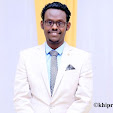Raised in a crowded, barely middle-class Somalian home, Cornell physician-scientist Prof. Said Ibrahim never thought being a doctor was in the cards for him.
“Medical school was reserved for wealthy elites,” he previously said, noting that his family was sustained only by his father’s income of about $50 a month.
Despite facing borderline poverty, Ibrahim never relented to the seemingly insurmountable odds. Managing to leave Somalia, he went on to earn a medical degree from Case Western Reserve University — followed by a residency at Brigham and Women’s Hospital, a masters of public health from Harvard and an MBA from the Massachusetts Institute of Technology’s Sloan School of Management.
Despite being armed with an arsenal of impressive post-nominals, it was another goal that stood as his greatest challenge yet: “to … understand racial variations in the utilization of healthcare and healthcare outcomes,” said Ibrahim, who was recently named head of Weill Cornell’s Division of Healthcare Delivery Science and Innovation, a group that aims to improve the patient experience.
Funded by the National Institutes of Health and other federal agencies for almost two decades, Ibrahim has long been a pioneer of health disparities research, a field that seeks to measure and address how patient outcomes differ across demographics. Having previously investigated racial gaps in musculoskeletal care, Ibrahim is currently working to trace disparity in results among osteoarthritis patients.
According to Ibrahim, when medication or changes to lifestyle fail to yield improvements, those suffering from osteoarthritis — a condition caused when the protective cartilage that cushions the ends of your bones wears down over time — often opt for knee and hip replacement, one of the most common elective surgical treatments.
But, his team found, “African Americans are 40 percent less likely to undergo” the procedure.
 |
| Courtesy of Dr. Said Ibrahim |
A scientist by trade, Ibrahim started asking questions: “Why is it that African Americans are under-utilizing this treatment? Why do they have concerns about undergoing treatment?”
While a suite of factors may contribute to the disparity, Ibrahim’s study found that “there is a different perception about the usefulness of the risks and benefits of the treatment [among African Americans].”
In keeping with this conclusion, when some African American osteoarthritis patients were presented with an educational video program in a randomized trial, they were much more likely to opt in to the procedure.
But simply researching healthcare inequity wasn’t enough for Ibrahim. Two years ago, he was appointed as Weill’s Senior Associate Dean for Diversity, where he believes he can apply his findings to developing more broad healthcare policy initiatives.
As a new leader of the program, Ibrahim took the baton from the earliest champions of inclusion and diversity at Weill — whose efforts since the 1980s notably helped an underprivileged 20-year-old from East Africa get admitted into medical school.
I’m a strong believer in the idea that one of the ways we can reduce inequalities in healthcare is to create a diverse workforce in healthcare, Ibrahim said.
As a champion of Weill’s diversity initiatives, “addressing … important disparities in healthcare access using the tools of education” is the most meaningful part of his job, a role in which he hopes to improve racial and gender inclusion in Cornell’s graduate and medical school.
And, while challenges lay ahead, according to Ibrahim, his profession is more accessible than ever. According to a 2019 Weill admission report, 18 percent of all Weill medical students were from groups underrepresented in medicine, boasting a 2-percent increase since 2018. Nearly a quarter of students in the Class of 2023 are also from underrepresented groups, while the majority of the class are women.
“There is a lot of demand for underrepresented groups in medicine, not only in terms of race and ethnicity, but socioeconomic status,” he explained. “More and more schools are becoming debt free, and I think the forces are all aligned for a large number of underrepresented students to consider this highly rewarding career.”
But despite the positive headwinds the push for diversity has at its back — Ibrahim said the battle for greater inclusivity is far from finished.
“I often find myself to be the only African American in conferences of 200, 300 people,” Ibhrahim said, who nevertheless expressed optimism. “I’m always inspired by the possibility that I have to do this in order to be a role model for others who feel that they don’t belong here.”















0 Comments